 Server
Colocation
Server
Colocation
 CDN
Network
CDN
Network
 Linux Cloud
Hosting
Linux Cloud
Hosting
 VMware Public
Cloud
VMware Public
Cloud
 Multi-Cloud
Hosting
Multi-Cloud
Hosting
 Cloud
Server Hosting
Cloud
Server Hosting
 Kubernetes
Kubernetes
 API Gateway
API Gateway

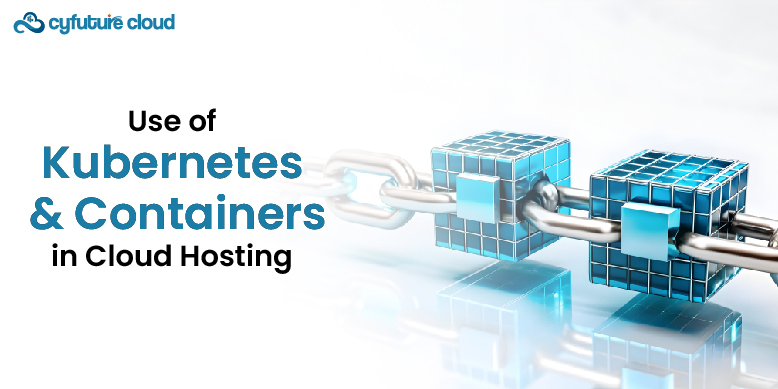
Cloud hosting has evolved significantly. One of the most transformative technologies in this space is containers and Kubernetes. Together, they offer robust solutions for managing applications on a cloud server. They ensure optimal:
- Performance
- Scalability
- Reliability
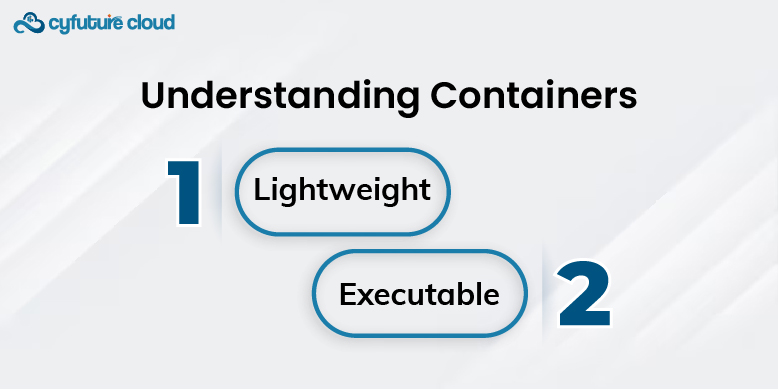
Containers are standalone software packages that are:
- Lightweight
- Executable
It includes everything needed to run software, including:
- Code
- Runtime
- Libraries
- Settings
Unlike typical virtual machines (VMs), containers use the same kernel as the host system. Moreover, they do not require a full operating system. This makes them much more efficient in terms of resources and startup times.
Key advantages of containers include:
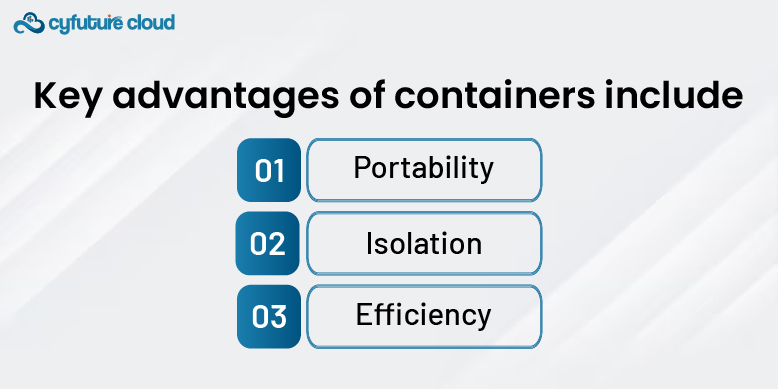
Containers can run on any system with a runtime environment, such as Docker. Thus, moving applications between different cloud servers or environments is easy.
Containers provide a level of isolation. Thus ensuring the software inside them does not interfere with other containers or the host system.
Containers use fewer resources than VMs. Thus allowing more applications to run on a single cloud server.
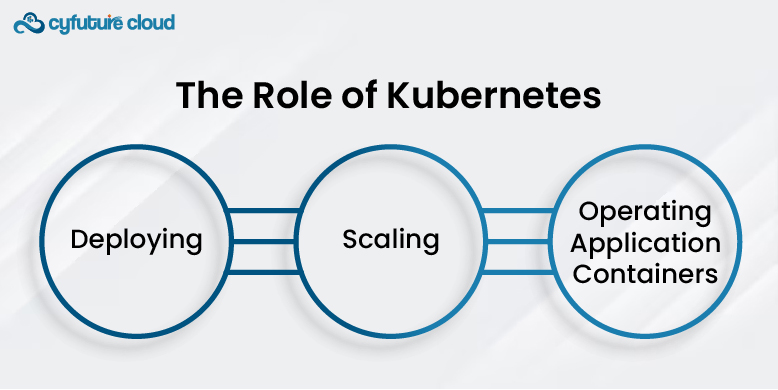
Abbreviated as K8s, it is an open-source platform designed to automate:
- Deploying
- Scaling
- Operating application containers
Kubernetes has become the industry benchmark for container orchestration.
The core benefits of Kubernetes include:
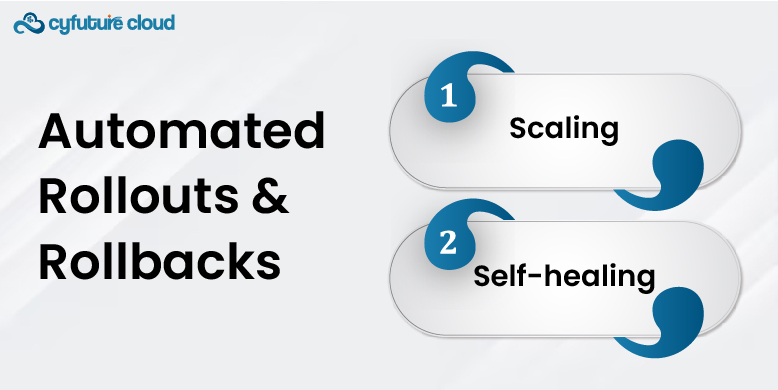
Kubernetes can manage updates to your applications seamlessly. Thus ensuring that changes are made with minimal disruption.
Kubernetes can automatically scale applications down or up based on demand. Thus ensuring optimal resource utilization and performance.
Kubernetes can automatically reschedule or replace containers that fail. Thereby ensuring high availability and reliability.
Service Discovery and Load Balancing
Kubernetes can expose a container using a DNS name or IP address and load balance traffic to ensure even distribution across multiple containers.
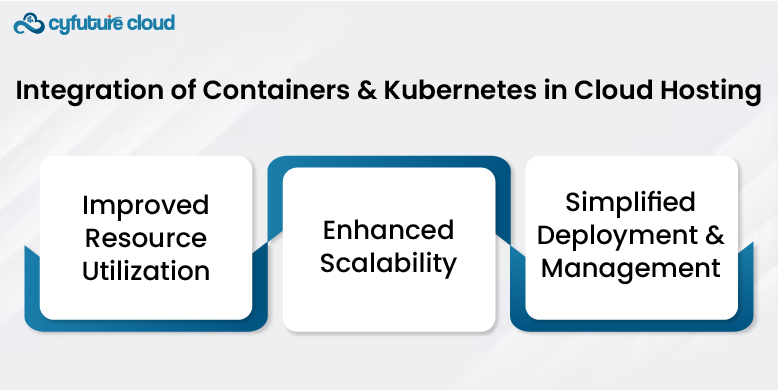
The integration of containers and Kubernetes has revolutionized hosting. It provides a more efficient, scalable, and resilient way to deploy and manage applications on cloud servers.
Containers allow for more efficient resource usage on a cloud server. They reduce the overhead of running several virtual machines. Thus, allowing for a greater density of applications on a single server. Kubernetes improves on this by dynamically allocating resources based on the current needs of the apps. Thus assuring that no resources are wasted.
Kubernetes' capacity to autonomously grow applications in response to demand is a major change in cloud hosting. Whether dealing with a sudden surge in web traffic or adjusting to lower usage periods, they ensure that applications always have the necessary resources. This elasticity is crucial for businesses that experience variable traffic patterns. Thereby, ensuring that they only pay for what they use on their cloud server.
Kubernetes streamlines the deployment and management of containerized applications. It provides a declarative configuration that allows developers to define their applications' desired state. It reduces the complexity associated with managing cloud servers. Moreover, it will enable development teams to focus on writing code rather than managing infrastructure.
Kubernetes guarantees high availability and fault tolerance by:
- Automatically rescheduling failed containers
- Distributing traffic across healthy containers
This self-healing capability minimizes downtime. Moreover, this ensures that applications remain available even when hardware or software fails on cloud servers.
Containers ensure that applications run reliably across several environments, including development and production. This solves the "it works on my machine" problem, in which software acts differently in production than during development. Kubernetes adds to this by providing a consistent environment for operating containers, regardless of the underlying cloud server infrastructure.
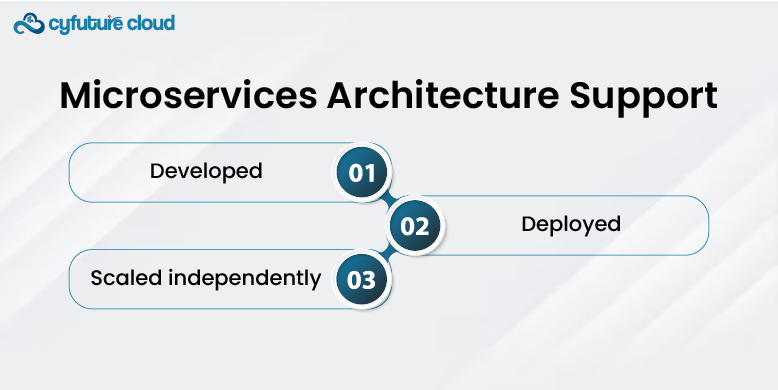
Containers and Kubernetes are particularly well-suited for microservices architectures. Containers allow individual microservices to be:
- Developed
- Deployed
- Scaled independently
Kubernetes provides the orchestration needed to manage these microservices. Thus ensuring they can communicate with each other effectively and scale as needed.
The adoption of containers and Kubernetes in cloud hosting is set to grow as more organizations recognize their benefits. Future trends include increased use of hybrid and multi-cloud environments. Here, Kubernetes will be crucial in managing applications across different cloud servers. Additionally, advancements in container security and management tools will further enhance these technologies' robustness and ease of use.
Using Kubernetes and containers in cloud hosting offers a transformative approach to managing applications on cloud servers. These technologies provide a powerful solution for modern cloud hosting needs.

Let’s talk about the future, and make it happen!
By continuing to use and navigate this website, you are agreeing to the use of cookies.
Find out more


